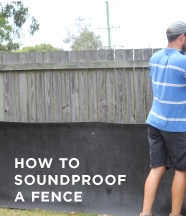Are you the kind of person who can’t stand annoying sounds? It could be the sound of someone chewing, clicking their pen or even breathing. Have people asked you to “take a chill pill” and accused you of exaggerated reactions? Well, the good news is that you aren’t alone.
What you are experiencing is called Misophonia. People didn’t even consider Misophonia to be a real problem before 2000. This problem has another name — selective sound sensitivity syndrome.
The bad news, however, is that while Misophonia might be mild for most people, it is extremely severe for some. So much so that it not only affects them psychologically but also physically. The need to express sensitivity to sufferers of Misophonia is paramount.

What are the symptoms?
For some people, the reaction may be limited to anxiety, discomfort, disgust or the urge to flee. For those with a more severe form of misophonia—the irritating noise could result in panic, rage or emotional distress (WebMD).
Physical reactions due to misophonia can include clenched teeth, pressure in the chest and arms, and tightened muscles.
Some people avoid social situations altogether due to anticipatory anxiety. For example, if they know that a certain person chews loudly, they might not want to be friends with them.
What does the research say?
A study conducted in 2017 showed that trigger sounds cause hyperactivity of the Anterior Insular Cortex (AIC) in the brain. This part of the brain is said to be responsible for emotional feelings. It directly affects how one experiences an event.
Another study conducted in 2019 concluded that misophonia is associated with altered brain activity in the auditory cortex and salience network.
How to treat Misophonia?
Unfortunately, there is no cure for misophonia yet. The following methods can help sufferers cope with the condition:
- Counselling – Counselling is a good idea not only for the patient but also for the family and significant others. It helps to confide in a specialist that can guide you. The counsellor can assist in the patient’s understanding of the disorder and recommend the correct therapeutic options.
- Misophonia Retraining Therapy (MRT) – This method is similar to Tinnitus Retraining Therapy (TRT), which helps the patient improve the ability to tolerate irritating sounds. MRT, on the other hand, uses pleasant sounds to reduce the annoyance caused by the trigger sound.
- Noise-Free Zones – A soundproofed area in the patient’s home can help achieve a safe space. This method is especially beneficial for those with severe misophonia. Experts recommend participating in sound-based therapy along with this. It is more important that the patient doesn’t internalise the idea that they need ‘protection’ from these sounds.
- White Noise Machines – These machines act as background noise. They mask the annoying noises in the background. Even turning the ceiling fan or the table fan on can help. There is only so much these machines can do, however. Sometimes they don’t help mask the trigger sounds at all.
Ask us about soundproofing (noise-free zones) for Misophonia
We might have done our research, but we do not claim to be doctors or specialists. Our forte is soundproofing, and we are experts in just that. If your counsellor asks you to consider soundproofing, we will definitely be able to assist in this specific area.
Soundproofing may be beneficial for those diagnosed with Misophonia. Here are some key points:
- Sleep better – Even if you are taking sound-based therapy, it can be difficult to control your irritability when you are tired. A soundproofed bedroom may help you avoid worrying about trigger sounds.
- Study or work better – Whether you are reading a book or ideating the next big thing—we know that it is important to focus. Misophonia shouldn’t take away your capability to grow. A soundproofed room away from those who tap while they work or click their pens.
We hope you found something that helps you in this blog. We understand that living with Misophonia is inconvenient and can possibly dent your relationships. We hope that it gets easier for you and your loved ones.
Give us a call on 07 3287 7647 if you are considering soundproofing solutions. We are always happy to help. You can also complete a short contact form and we will get in touch with you shortly.


















